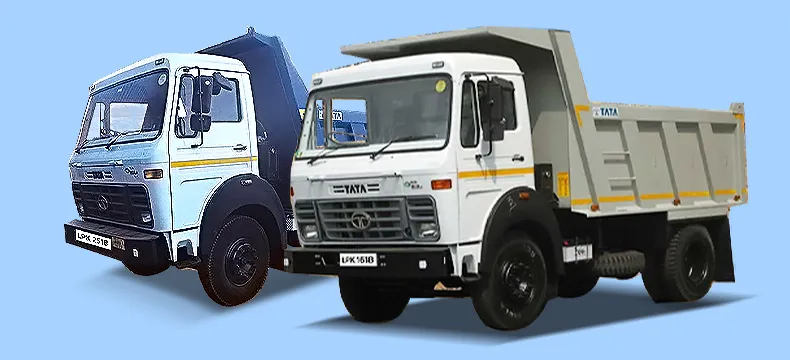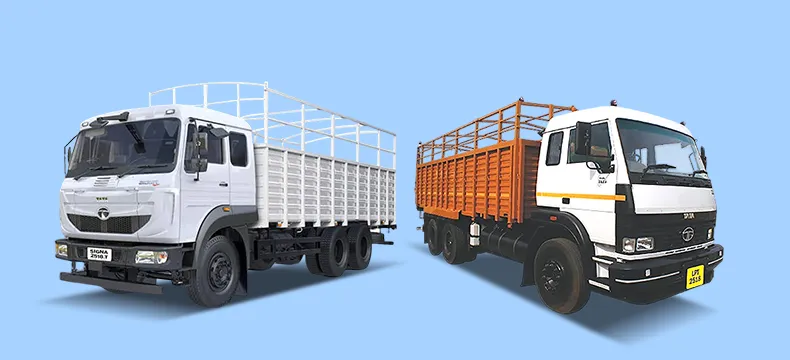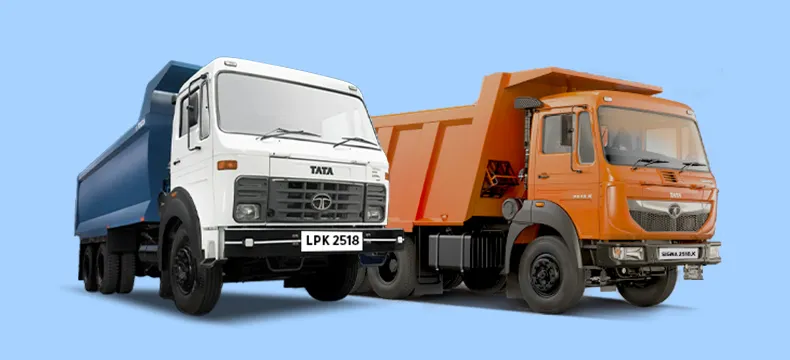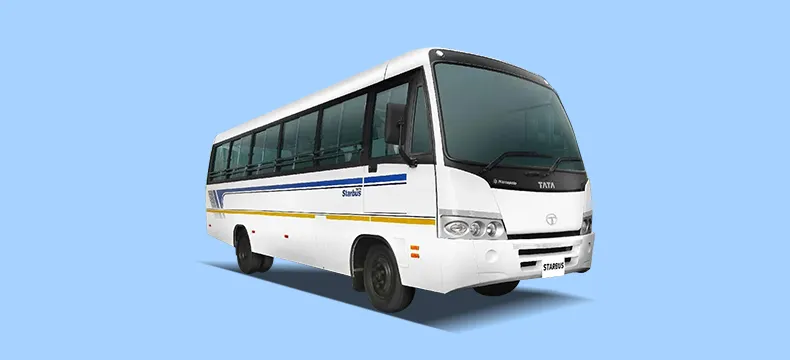11 Mar 2025

Essential Safety Practices for Operating Tipper Trucks
- Tata Motors
- 2 Dec 2024
- Commercial Vechicle
Introduction
Tipper trucks are essential in industries like construction, mining, and logistics, especially in a developing nation like Bangladesh. These heavy-duty vehicles are designed to transport and unload large quantities of materials, making them indispensable for projects that require the movement of gravel, sand, soil, or other bulk materials. However, operating these trucks can be hazardous if proper safety measures are not followed. Ensuring tipper truck safety prevents accidents, reduces downtime, and maintains operational efficiency. In this blog, we will cover the essential Tipper Truck Safety Practices Bangladesh must follow to ensure a safe working environment for drivers, operators, and surrounding workers.
Safety Practices for Operating Tipper Trucks
Operating tipper trucks safely involves driver training, vehicle maintenance, and adherence to best practices on the job site. Let’s explore some of the key safety practices:
-
Pre-Operation Inspections
Conducting a thorough pre-operation inspection of the tipper truck before starting any job is crucial. This helps identify any mechanical issues that could pose a risk during operation. Inspections should cover essential elements like brakes, tyres, hydraulic systems, and lights.
- Check Brakes and tyres: Ensure that the truck’s brakes are functioning properly and that the tyres are in good condition, with sufficient tread depth. Faulty brakes or worn tyres can lead to accidents, especially when the truck is loaded.
- Inspect Hydraulic Systems: The hydraulic system, which operates the tipping mechanism, must be checked regularly for leaks or damage. Faulty hydraulics can result in uncontrolled tipping, leading to material spillage or even tipping the truck over.
- Lights and Warning Signals: Ensure that all lights and warning signals are operational, especially when working on construction sites or in low-visibility conditions.
-
Proper Loading Techniques
One of the most critical aspects of tipper truck safety is ensuring that the truck is loaded properly. Overloading or uneven loading can lead to tipping accidents, which are both dangerous and costly.
- Avoid Overloading: Every tipper truck comes with a maximum load capacity, and exceeding this limit can strain the truck’s engine, suspension, and braking system. Overloading can also make the truck unstable, increasing the risk of it tipping over.
- Load Evenly: The load should be distributed evenly across the truck’s bed. Uneven loading shifts the centre of gravity, making the truck more likely to tip over, especially when turning or driving on uneven terrain.
- Secure the Load: Make sure the load is secured before transportation. Loose materials can shift during transit, which may not only damage the truck but also pose a risk to other vehicles and pedestrians.
-
Safe Tipping Practices
Tipping accidents are among the most common causes of injury when operating tipper trucks. Following the Safe Operation of Tipper Trucks, Bangladesh is key to minimising the risk of tipping incidents.
- Tipping on Level Ground: Always tip the load on level ground. Tipping on a slope or uneven surface can cause the truck to become unbalanced and tip over. Ensure that the ground is stable and clear of any obstacles before tipping.
- Avoid Sudden Movements: Make sure the truck is stationary before raising the bed to tip the load. Sudden movements while tipping can cause the truck to become unstable.
- Monitor Weather Conditions: Wet or windy conditions can increase the risk of tipping. In such cases, it may be best to postpone tipping until conditions improve to ensure the truck remains stable.
-
Driver Training and Awareness
The importance of proper training for drivers cannot be overstated. All operators should be well-trained in Tipper Truck Safety Practices Bangladesh and know how to handle these vehicles under different conditions.
- Understand the Vehicle’s Limits: Drivers should be fully aware of their truck’s limits, including load capacity, turning radius, and stopping distance. This knowledge is essential for preventing accidents.
- Stay Alert: Drivers should always be aware of their surroundings, especially when operating in busy areas or on construction sites. This includes watching for other vehicles, workers, and potential hazards.
- Regular Safety Training: Continuous training is essential to keep drivers updated on the latest Tipper Truck Safety Tips Bangladesh and best practices. Regular refresher courses can ensure that operators remain vigilant and informed about the latest safety protocols.
-
Emergency Preparedness
No matter how many safety measures are in place, emergencies can still occur. Having an emergency plan is crucial for mitigating the effects of accidents.
- First Aid Kits: Ensure that every tipper truck is equipped with a first aid kit and that drivers are trained in basic first aid.
- Emergency Procedures: All drivers and workers should be familiar with emergency procedures, including what to do in case of a tip-over or mechanical failure.
Conclusion
Ensuring the safe operation of tipper trucks in Bangladesh is not just a matter of following a few guidelines but requires a comprehensive approach to safety. By incorporating proper loading techniques, maintaining the vehicle, ensuring driver training, and adhering to safe tipping practices, businesses can significantly reduce the risks associated with operating tipper trucks. Tata Motors’ range of trucks, including the Tata LPK 1618 and Tata LPK 2518, come equipped with safety features designed to support safer operations, but it is essential that operators follow these tipper truck safety guidelines to ensure a secure and efficient working environment.
FAQs
What are the key safety practices for operating tipper trucks?
The key practices include conducting pre-operation inspections, avoiding overloading, ensuring even load distribution, and following safe tipping practices.
How can operators prevent tipping accidents while using a tipper truck?
Operators can prevent tipping by tipping on level ground, avoiding sudden movements while tipping, and ensuring the load is evenly distributed across the truck bed.
How should loads be secured in a tipper truck to ensure safe operation?
Loads should be evenly distributed and secured properly to prevent them from shifting during transit, which could lead to accidents or vehicle damage.
- Tags





















